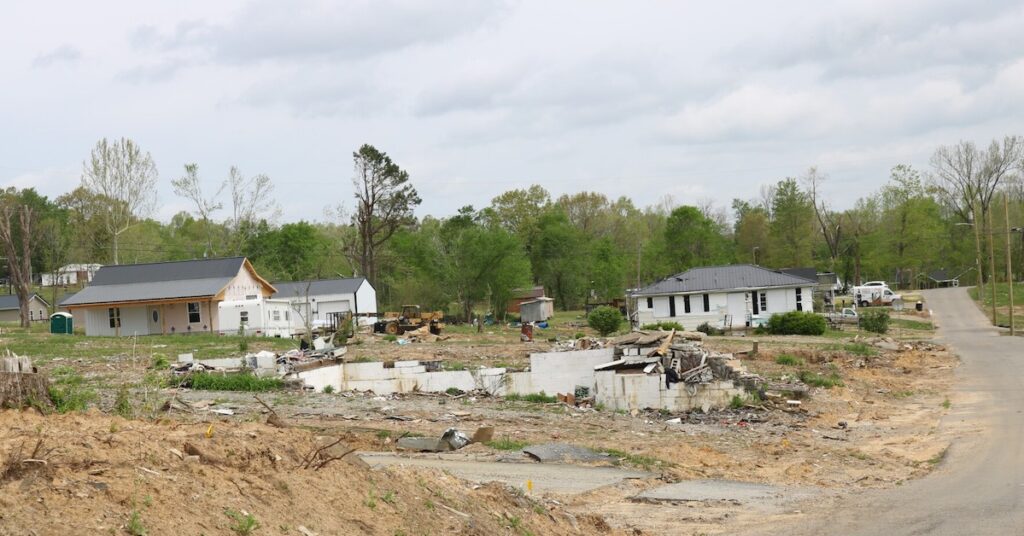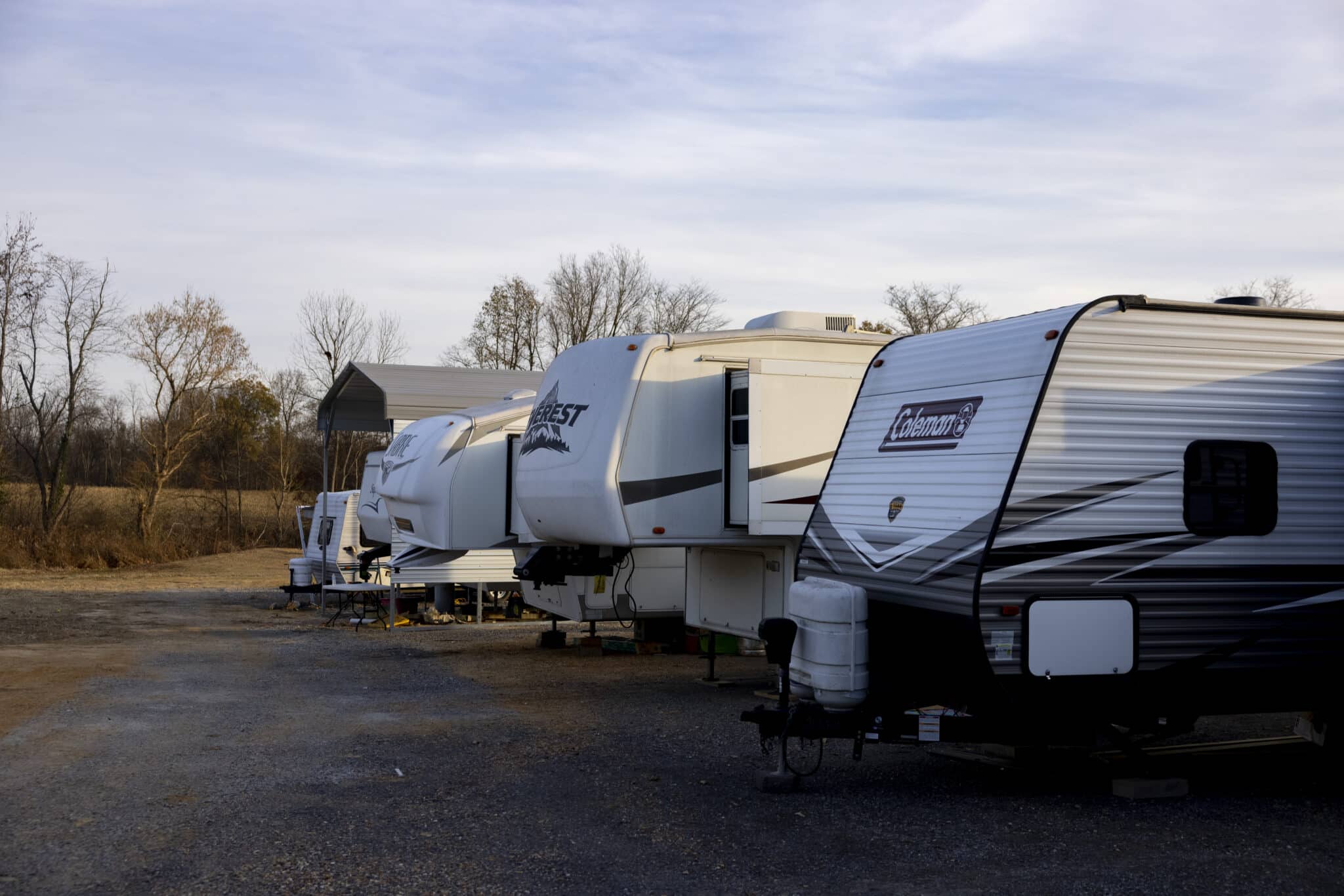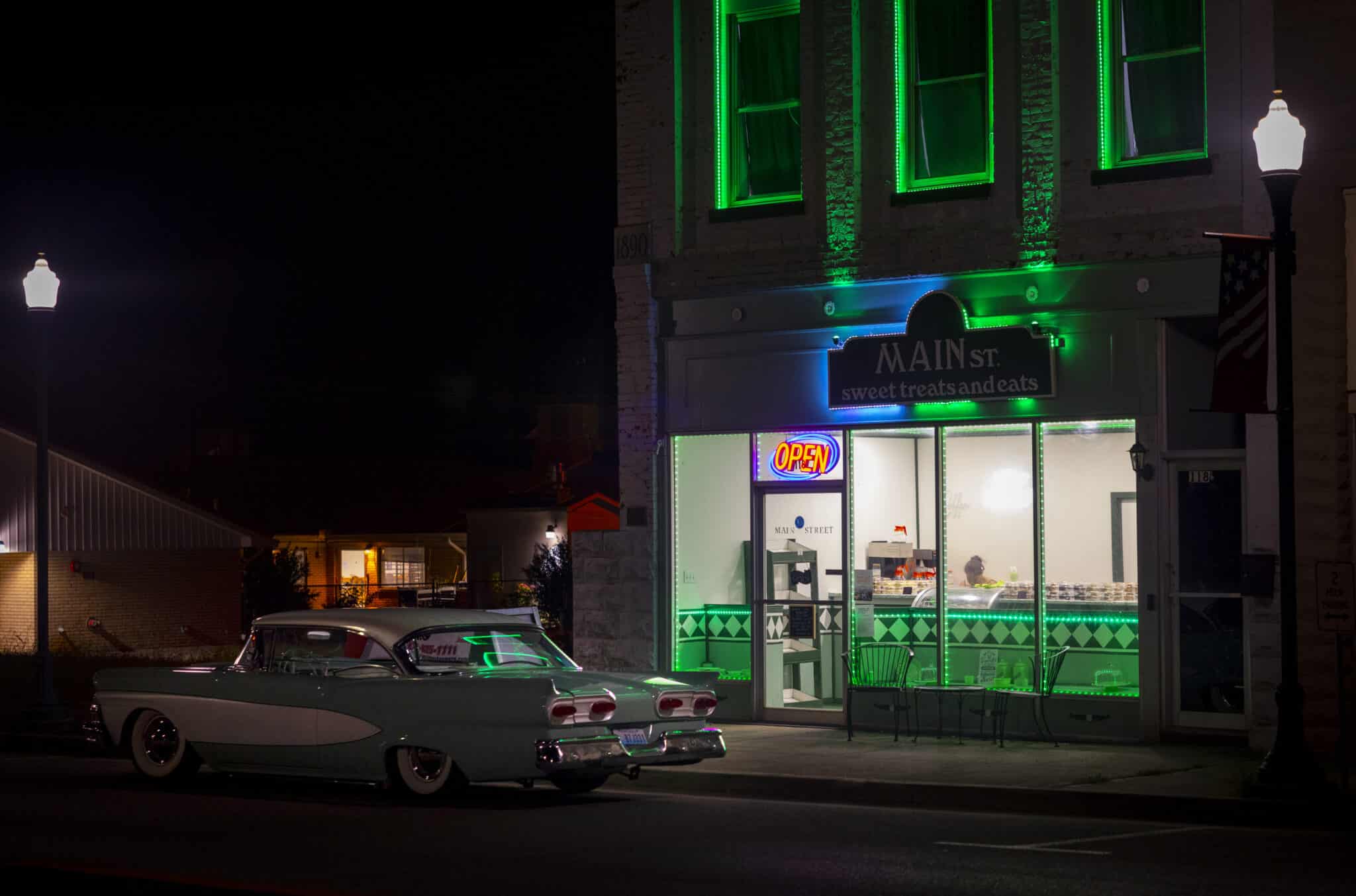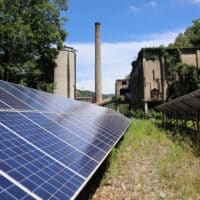FRANKFORT — Kentucky officials are opening up applications this summer for almost $124 million in federal funding to help rebuild housing and infrastructure primarily in tornado-impacted Western Kentucky, which Gov. Andy Beshear said could help rebuild around 600 homes.
The federal funding from the U.S. Department of Housing and Urban Development (HUD) will go to rebuilding homes, rehabilitating and rebuilding rental properties and reinforcing electric and water infrastructure for potential future disasters. The funding is also directed to help some Eastern Kentucky communities that were hit hard by flooding in 2021, separate from flooding that devastated the region in the summer of 2022.

At a Wednesday news conference, Beshear encouraged those impacted by tornadoes or flooding in 2021 and still in need of stable housing to reach out to local nonprofits or housing authorities about the new funding.
“We’re taking a big step forward in helping our neighbors who are impacted by the tornadoes of 2021 and the floods of 2021. Many lost their homes, some lost everything that they own,” Beshear said. “We’re going to spread the wealth to those who need it the most.”
Eighty percent of this funding will be directed to Graves, Hopkins, Warren and Breathitt counties, while the remaining monies will go to 36 other counties.
The Kentucky Department of Local Government (DLG) plans to open applications for local governments, nonprofits, private companies and other groups to apply for housing funding on May 1. Applications to reinforce and repair infrastructure will open on June 1.
Beshear said he expects a separate tranche of HUD funding to be made available to the state to address the homes and infrastructure lost in the 2022 summer floods in Eastern Kentucky, something that Republican U.S. Sen. Mitch McConnell has said will be near $300 million.

Community leaders on the front lines of tornado recovery in Western Kentucky were enthusiastic about the federal funding but also made clear it would likely not solve the entirety of an ongoing affordable housing shortage.
Mayfield-Graves County Long-Term Recovery Group Executive Director Ryan Drane said there was a “housing shortage crisis” on both ends of the state before tornadoes impacted Western Kentucky in 2021 and floods impacted Eastern Kentucky.
“We feel like this is going to be a great opportunity for many of the communities to, you know, on the road for recovery,” Drane said. “Is it going to make the entire region whole? I would say not. But we weren’t ‘whole’ before the disaster hit.”
The DLG consulted last year with local housing authorities, federal officials and more to create an analysis of what unmet needs remained for housing and infrastructure in Western Kentucky following the tornadoes. That initial analysis found, even with the funding, there was more than $110 million in unmet needs to address housing.
“The discrepancies between the need and the funding are the result of the increased need for affordable housing,” the initial state plan stated.
HUD announced tens of millions of dollars in additional recovery funds for Kentucky in January to reach the total of nearly $124 million the state is receiving, but even then the DLG’s latest plan states the “calculated unmet housing need will still not be met.”
Adrienne Bush, the executive director of the housing advocacy group Homeless and Housing Coalition of Kentucky, said once the flow of federal funding into Kentucky ends, state lawmakers need to reassess what else needs to be done to address housing needs.
“We’re going to spend a lot of time this interim talking about the remaining unmet housing needs in the context of the 2024 budget and what the state will need to put up in order to finish the job,” Bush said.
Bush credited the GOP-controlled state legislature for passing a law this year to establish a rural housing trust fund supplemented with $20 million already set aside for disaster recovery by the state. A coalition of nonprofits this year had unsuccessfully asked the legislature for $300 million over two years for affordable housing construction.
Kentucky suffered a shortage of almost 79,000 affordable housing units before tornadoes and floods destroyed and damaged thousands of homes, according to an analysis of data from the American Community Survey for 2016 to 2020.
Local leaders from Western Kentucky who joined Beshear on Wednesday remained optimistic the funding would move their communities forward, including in the small city of Dawson Springs, hometown to the governor’s father, former Gov. Steve Beshear..
“We’re seeing that rebuilding all in Dawson Springs, but there’s so many that can’t get there from where they are right now,” said Hopkins County Judge-Executive Jack Whitfield. “This funding is going to take care and help those so much who may not be able to otherwise afford a new house.”

This article is republished under a Creative Commons license from Kentucky Lantern, which is part of States Newsroom, a network of news bureaus supported by grants and a coalition of donors as a 501c(3) public charity. Kentucky Lantern maintains editorial independence. Contact Editor Jamie Lucke for questions: info@kentuckylantern.com. Follow Kentucky Lantern on Facebook and Twitter.






